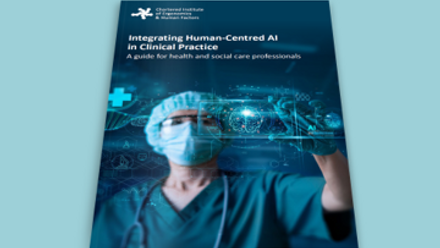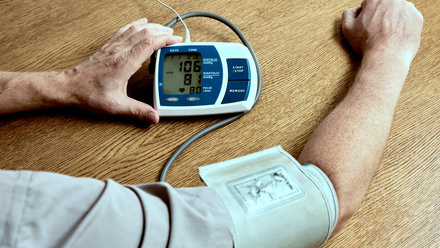Introduction to Human Factors in Healthcare (Atrainability)
About the course
Delegates from all professions within the industry, whether novices or experienced, will be introduced to the subject of human factors, and will understand how to achieve safer individual and team performance in high-risk healthcare environments.
This challenging, lively & interactive workshop will explore how we are all fallible and can make simple mistakes regardless of our commitment, knowledge and skills. Drawing on our 30 year experience in aviation, health and social care to introduce the concepts of human factors, we offer practical tools and strategies to help maintain and sustain high levels of performance under daily challenging conditions. Participants will appreciate the benefits of reporting all incidents and learning from excellence.
Who should attend?
This course aims to improve safety and productivity in healthcare. Delegates from all professions and roles within the profession, whether novices or experienced, will be introduced to the subject of human factors. They will gain an understanding of how to achieve safer individual and team performance in high-risk healthcare environments.
Expected Outcomes
You will:
- Develop a greater awareness of Human Factors and how being human influences patient safety, patient experience and team effectiveness.
- Maintain the balance of care & risk in demanding, dynamic situations.
- Open effective channels of communication across the hierarchy barrier.
- Be more aware of error provoking conditions offering practical tools that promote safe effective working.
- Improve team working through empathy, individual & team situation awareness & key communication skills.
- Understand how everyday pressures can challenge the fine balance between self confidence & humility.
- Learn from successful interventions as well as from events that haven’t gone quite so well, or indeed as planned.
Course content
Introduction
The definition of Human Factors and how it applies throughout the working day. An introduction to the system model and an overview of the problems associated with simply being human. The concept of a Just Culture is a major focus.
How and why we make errors
We will demonstrate our essential ability to miss things before our eyes and that ‘stupid’ mistakes are actually anything but. In many normal work situations, we are exposed to high risks that we may not have previously considered.
Stress recognition and solutions
This session focuses on the effects of stress on performance. To enhance team harmony, it is vital that such pressures are understood. Stress affects us all, sometimes beneficially but frequently it can impact upon our ability to perform to our highest standards. All of these concepts are discussed and some coping strategies offered.
Situation awareness
This is a fundamental concept in human factors. It refers to the perception of all aspects of the current situation, how that compares to the desired state and thinking ahead to anticipate future needs and outcomes. It is crucial that all members of the team share the same awareness at all times.
Decision making
We make decisions constantly and most of them are automatic, without thinking; sometimes there is a clear rule, sometimes we have to work it out. There are benefits and pitfalls to all of these methods, which will be aired and compared, confirmation bias being a common and dangerous flaw. Methods of checking decisions against desired outcome will be offered.
Communication
Communication always figures high on the list of team problems. In this module we show why and offer simple solutions to common problems to avoid misunderstandings, such as closed loop and avoiding leading questions. There are models used for effective communicating and aids for assertiveness to overcome issues around hierarchy challenge.
Leadership & team-working
A brief journey through effective leadership behaviour and how to overcome common pitfalls in motivating people to work together. However, the team must be prepared to be led and this is also discussed. Balancing the needs of the patient, the task and the team is important in terms of patient safety and professional wellbeing. Hierarchical issues and approachability will also be discussed.
Briefing & checklists
How do we raise the situation awareness of our team and plan for the expected while preparing for the unexpected? A briefing of the team is a great starting point. The more subtle aspects of hierarchy and creating appropriate group climates will be aired. We will also discuss how to use checklists as an effective tool to help prevent error and the different types of checklist.
Debriefing
Debriefing is often accomplished when things have gone wrong but one of the signs of an effective team is the willingness to discuss what went well and what could be learned. Here we discuss the benefits and skills associated with effective debriefing and appreciative enquiry.
Review and summary
The summary draws together all the strands discussed throughout the day and relates them to the issues identified by those present at the start of the course. Participants will be asked to say what they could do differently as a result of the topics discussed during the course.
What’s included?
- A full day of training and facilitation delivered by one of our small team of human factors experts, all with the credibility gained from working to a high professional level in a demanding, high risk industry prior to becoming human factors experts.
- A PDF copy of the slides, module supporting handouts and CPD accredited certificate of attendance - all in electronic form.
About Atrainability
Atrainability is recognised as one of the leading providers of in-house Human Factors training for critical teams including health and social care, ambulance and fire services, and aviation. We have worked extensively with the NHS since 2002 and have been at the heart of national programmes and research projects, contributing academic papers and the highly acclaimed 'Team Work' module for The Productive Operating Theatre, forming part of the improvement programme created by the NHS Institute for Innovation and Improvement. Our expert trainers are experienced across a range of high reliability professions, and as a result offer unique perspectives and insider knowledge to help teams apply practical behavioural skills to maintain and enhance safety. We understand that one course does not fit all and will work with you to identify the best training methods to meet your current challenges.
Find out more






